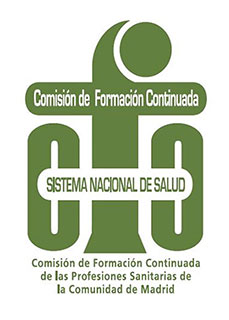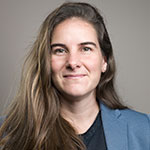Course in Covid-19: Lessons from the Pandemic
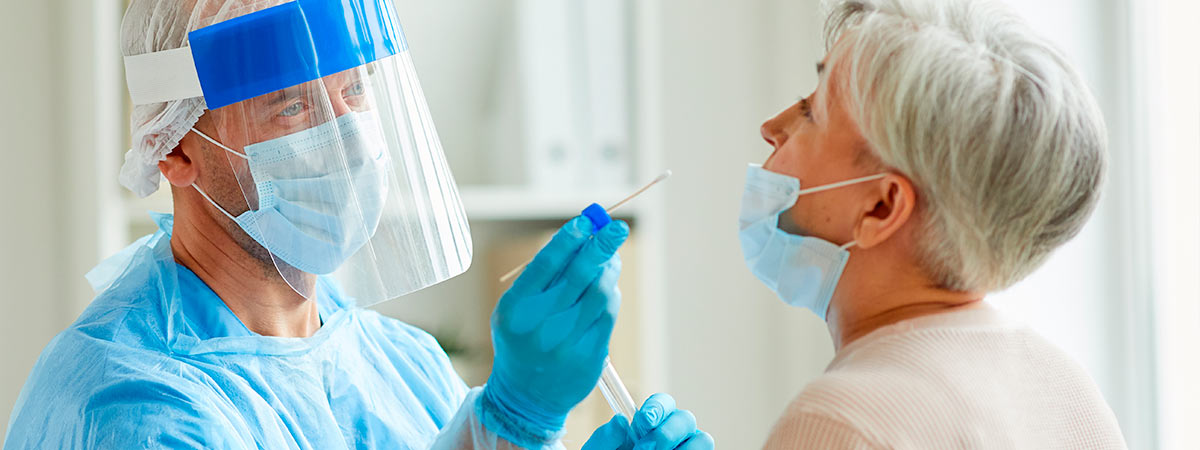
What have we learned from Covid-19?
The SARS-CoV-2 pandemic has affected every individual and every society on the entire planet, and continues to be a cause of suffering and concern for all societies and professions.
Although the uncertainties about the disease are still numerous, science has advanced rapidly and notably in its knowledge, from various points of view: microbiological, clinical and epidemiological, as well as in its analysis of the social and health repercussions.
Therefore, an in-depth analysis of Covid-19 can be of interest to many different professions within the biomedical sciences and related disciplines.
The SARS-Cov2 pandemic, as of 11/07/2021 and according to data from Johns Hopkins University, has produced more than 187 million diagnosed cases in the world, and 4 million deaths. These figures are surely much higher, as many cases remain undiagnosed and deaths unknown (especially at the beginning of the pandemic and in countries with limited resources). The same University attributes almost 4 million confirmed cases and 81,000 deaths to Spain.
It has transformed the life of societies and the individuals that compose it on all continents. Although vaccines are available, it seems certain that it will continue to be a daily problem for months to come.
Curriculum
Covid-19: Lessons from the Pandemic
- 1. History of a pandemic: Dr. Gª Forcada
- 2. Microbiology: Dr. Sánchez
- 3. Clinic: Dr. Igúzquiza
- 4. Diagnosis and treatment: Dr. Herrero
- 5. Nursing care in Covid-19: Mrs. Matute
- 6. Prognosis (long Covid, post-Covid syndrome): Dr. Igúzquiza
- 7. Epidemiology: Dr. Palacios
- 8. Vaccines: Dr. Torres
- 9 Direct and indirect repercussions of the pandemic: Dr. Rubio
- 10. Covid-19 and mental health: Dr. Gª Forcada
Professors
Active clinicians of the internal medicine service of the Reina Sofía Hospital, Tudela, Navarra, with direct involvement during the pandemic in caring for Covid-19 patients. List of professors:
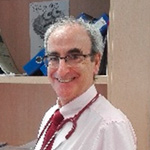 Ángel García Forcada
Director de curso
Course director
Licenciado en Medicina y Cirugía por la Universidad de Zaragoza. Especialista en medicina interna por el Hospital del Mar de Barcelona. Facultativo especialista de área de medicina interna en el Hospital Reina Sofía de Tudela. Adscrito al pabellón Covid-19 del Hospital San Juan de Dios de Zaragoza en abril de 2020. En el Hospital Reina Sofía, Tudela, en septiembre de 2020. Voluntariado en cooperación sanitaria en Centroamérica y África subsahariana. Escritor de un libro divulgativo sobre la pandemia Covid 19.
Ángel García Forcada
Director de curso
Course director
Licenciado en Medicina y Cirugía por la Universidad de Zaragoza. Especialista en medicina interna por el Hospital del Mar de Barcelona. Facultativo especialista de área de medicina interna en el Hospital Reina Sofía de Tudela. Adscrito al pabellón Covid-19 del Hospital San Juan de Dios de Zaragoza en abril de 2020. En el Hospital Reina Sofía, Tudela, en septiembre de 2020. Voluntariado en cooperación sanitaria en Centroamérica y África subsahariana. Escritor de un libro divulgativo sobre la pandemia Covid 19.
 Teresa Rubio Obanos
Profesora
Professor
Licenciada en Medicina y Cirugía por la Universidad de Zaragoza. Especialista en medicina interna por el Hospital Miguel Servet de Zaragoza. Jefa de servicio de medicina interna, Hospital Reina Sofía, Tudela Encargada de la consulta de VIH/SIDA en el Hospital Reina Sofía. Coordinadora del programa PROA del hospital. Adscrita al pabellón Covid-19 desde marzo de 2020.
Teresa Rubio Obanos
Profesora
Professor
Licenciada en Medicina y Cirugía por la Universidad de Zaragoza. Especialista en medicina interna por el Hospital Miguel Servet de Zaragoza. Jefa de servicio de medicina interna, Hospital Reina Sofía, Tudela Encargada de la consulta de VIH/SIDA en el Hospital Reina Sofía. Coordinadora del programa PROA del hospital. Adscrita al pabellón Covid-19 desde marzo de 2020.
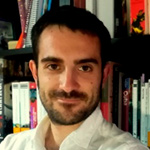 David Sánchez
Profesor
Professor
Licenciado en Medicina y Cirugía por la Universidad de Zaragoza. Especialista en medicina interna por el Hospital Clínico de Zaragoza. Facultativo especialista de área de medicina interna en el Hospital Reina Sofía de Tudela. En el último año de doctorado (enfermedades infecciosas). Adscrito al pabellón Covid-19 desde marzo de 2020. Escritor de novelas de ficción. Voluntariado en cooperación sanitaria en el sureste asiático.
David Sánchez
Profesor
Professor
Licenciado en Medicina y Cirugía por la Universidad de Zaragoza. Especialista en medicina interna por el Hospital Clínico de Zaragoza. Facultativo especialista de área de medicina interna en el Hospital Reina Sofía de Tudela. En el último año de doctorado (enfermedades infecciosas). Adscrito al pabellón Covid-19 desde marzo de 2020. Escritor de novelas de ficción. Voluntariado en cooperación sanitaria en el sureste asiático.
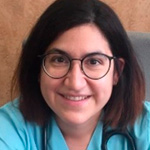 Isabel Torres Courchoud
Profesora
Professor
Licenciada en Medicina y Cirugía por la Universidad de Zaragoza. Especialista en medicina interna por el Hospital Clínico de Zaragoza. Facultativa especialista de área de medicina interna en el Hospital Reina Sofía de Tudela. Máster en investigación biomédica, infección por el VIH. Doctora en Medicina por la Universidad de Zaragoza. Adscrita al pabellón Covid-19 desde marzo de 2020.
Isabel Torres Courchoud
Profesora
Professor
Licenciada en Medicina y Cirugía por la Universidad de Zaragoza. Especialista en medicina interna por el Hospital Clínico de Zaragoza. Facultativa especialista de área de medicina interna en el Hospital Reina Sofía de Tudela. Máster en investigación biomédica, infección por el VIH. Doctora en Medicina por la Universidad de Zaragoza. Adscrita al pabellón Covid-19 desde marzo de 2020.
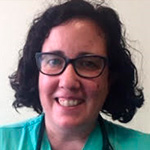 Mª Jesús Igúzquiza
Profesora
Professor
Licenciada en Medicina y Cirugía por la Universidad de Navarra. Especialista en medicina interna por el Hospital Clínico de Zaragoza. Facultativa especialista de área de medicina interna en el Hospital Reina Sofía de Tudela Máster en enfermedad tromboembólica, infección por VIH, atención médica urgente. Adscrita al pabellón Covid-19 desde septiembre de 2020.
Mª Jesús Igúzquiza
Profesora
Professor
Licenciada en Medicina y Cirugía por la Universidad de Navarra. Especialista en medicina interna por el Hospital Clínico de Zaragoza. Facultativa especialista de área de medicina interna en el Hospital Reina Sofía de Tudela Máster en enfermedad tromboembólica, infección por VIH, atención médica urgente. Adscrita al pabellón Covid-19 desde septiembre de 2020.
 Tina Herrero
Profesora
Professor
Licenciada en Medicina y Cirugía por la Universidad de Valencia. Especialista en Neumología por el Hospital Clínico de Zaragoza. Facultativa especialista de área de neumología en el Hospital Reina Sofía de Tudela. Adscrita al pabellón Covid-19 desde marzo de 2020.
Tina Herrero
Profesora
Professor
Licenciada en Medicina y Cirugía por la Universidad de Valencia. Especialista en Neumología por el Hospital Clínico de Zaragoza. Facultativa especialista de área de neumología en el Hospital Reina Sofía de Tudela. Adscrita al pabellón Covid-19 desde marzo de 2020.
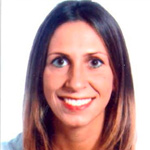 Lara Palacios García
Profesora
Professor
Licenciada en Medicina y Cirugía por la Universidad del País Vasco. Especialista en medicina interna por el Hospital Universitario Basurto de Bilbao. Facultativa especialista de área de medicina interna en el Hospital Reina Sofía de Tudela. Máster en enfermedades crónicas, infección por el VIH, atención médica urgente. Adscrita al pabellón Covid-19.
Lara Palacios García
Profesora
Professor
Licenciada en Medicina y Cirugía por la Universidad del País Vasco. Especialista en medicina interna por el Hospital Universitario Basurto de Bilbao. Facultativa especialista de área de medicina interna en el Hospital Reina Sofía de Tudela. Máster en enfermedades crónicas, infección por el VIH, atención médica urgente. Adscrita al pabellón Covid-19.
 Estefanía Matute Lavilla
Profesora
Professor
Licenciada en enfermería. Enfermera en el área de medicina Interna el Hospital Reina Sofía de Tudela, Navarra. Adscrita al pabellón Covid-19 desde marzo de 2020.
Estefanía Matute Lavilla
Profesora
Professor
Licenciada en enfermería. Enfermera en el área de medicina Interna el Hospital Reina Sofía de Tudela, Navarra. Adscrita al pabellón Covid-19 desde marzo de 2020.
More Academic Info
Aimed at:
Specific competences
At the end of the course, students will be trained and will have learned to:
- Understand the history of a pandemic.
- Interpret the microbiological aspects of the SARS CoV-2 virus, which causes Covid-19.
- Understand the clinical features of the disease.
- Know the basic elements to diagnose and treat Covid-19.
- Know the nursing care applied in Covid-19.
- Know how to interpret the evolution and prognosis of the disease.
- Understand the epidemiology of Covid-19 and the SARS-CoV 2 virus.
- Know and evaluate vaccines against Covid-19.
- Assess the consequences at different levels of the pandemic.
- Understand the impact produced on mental health in all its dimensions.
Objectives
- Analyze and assess the body of knowledge we have on Covid-19 after more than 16 months of pandemic.
- Widely disseminate to improve future actions against pandemics. Despite the fact that the speakers are mostly practicing doctors, an attempt will be made to give a holistic and understandable vision for people not directly involved in the clinical task.
- Provide the most up-to-date knowledge about Covid-19 to understand broadly and in all its dimensions a historical phenomenon such as this global pandemic.
- Analyze, in the light of existing scientific publications, the strategies that have been used in the management of the pandemic
Methodology
- Online course through Nebrija virtual classroom. Teaching sessions scheduled online with teacher interaction with students after the teacher's presentation. The sessions will be recorded for those professionals who are not able to attend the live session.
- Presentation of the subject by the speaker, with discussion of questions and clinical cases for (60 minutes of presentation and 60 of student-teacher interaction with clinical cases).
- The necessary bibliography to analyze the subject will have previously been provided.
- Support of the subjects with slides.
- Teaching material and bibliography provided by teachers.
- Interactive forum.
- Interactive personalized tutoring sessions via email.
- Evaluation: The student will follow the teaching content. The student must take a multiple-choice exam (50 questions, 5 possibilities with only one valid answer), and will need 60% correct answers to get the certificate of achievement to guarantee the assimilation of concepts and the fulfillment of the objectives. Alternative: The student must submit a short paper commenting on an article (or several if they are on the same topic) of their choice from all those provided at the beginning of the course. To do this, he will have the advice of an assigned tutor and chosen from among the group of speakers. Post-training assessment survey on satisfaction of expectations.

